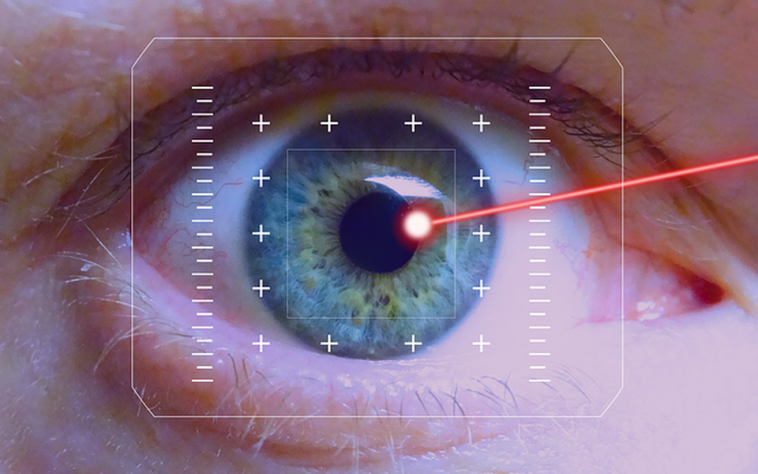LASIK has become a common surgery for many who need vision correctness. The surgery
reduces the dependency of people on corrective eyewear such as glasses and contact lenses.
Preparing for the surgery results in one-half of success, while the post-operative measures
lead to another half. As with any other surgery, the patient should strictly follow the
instructions offered by the doctor to reduce the risk of complications. This post rounds up
some important post-operative measures one has to take after eye surgery in India and offers
a short brief about LASIK surgery.
What is LASIK surgery?
The LASIK surgery as mentioned earlier is a refractive eye surgery performed to correct any
problems in the vision. LASIK or Laser-assisted in situ keratomileusis can be an alternative
to any corrective devices such as glasses or lenses. During LASIK surgery, a specialized
cutting laser is used precisely to alter the shape of the cornea in the eye to enhance vision.
The cornea is the dome-shaped clear tissue present in the eye. In people with normal vision,
the cornea refracts or bends the light precisely onto the retina, which is present at the back of
the eye. But in a condition such as myopia (nearsightedness) or hyperopia (farsightedness),
the refraction is not precise which results in blurred vision.
Risks
The complication that may result in loss of vision is rare with LASIK. But certain side effects
include dry eyes and temporary visual problems including glare. The risks however clear up
within a few months after the surgery and very few consider it as long-term problems.
Dry eyes: LASIK surgery results in a temporary reduction of tear production. Therefore, for
the first six months post-surgery, the eyes might feel extremely dry as they heal. Dry eyes
impair the quality of vision. To avoid such discomfort, the doctor may recommend using eye
drops. If severe dryness persists, the patient can opt for another surgery and get special plugs
in the tear ducts to prevent the draining of tears from the eye surface.
Glare, halos, and double vision: after the surgery, the patients have difficulty in seeing at
night which may last for few days to weeks. The patient may also experience increased
sensitivity and glare when present around bright lights. Double vision is also a common risk.
Regression: regression is a condition where the vision slowly changes to the original
prescription. This is an extremely rare risk.
Vision loss or changes: In rare cases, surgical complications can lead to loss of vision. Some
people may not have a clear or sharp vision as previously.
A condition that may increase the risk
Certain health conditions may worsen the risks associated with LASIK surgery or also make
the outcomes less predictable. The LASIK eye surgery is not recommended by the doctor if
the person has the following conditions
● Autoimmune disorders like rheumatoid arthritis
● A weak immune system
● Persistent dry eyes
● Recent alterations in vision because of medications, hormonal changes, pregnancy, or
age
● Inflammation of cornea and other conditions related to various parts of the eye.
It is also important to follow the post-operative measures recommended by the doctor to
avoid high-risk chances.
Post-operative care
Immediately after the surgery, the patient might experience the following
● Moderate tearing from eyes
● The sensation of foreign in eyes
● Hazy or blurred vision
● Increased sensitivity to bright and high-intensity light
Follow the upcoming precautions to speed up recovery and improve the success of the
surgery
Take a few hours nap immediately after the surgery
The doctor will instruct the patients to take rest for few hours after the LASIK eye surgery.
Sleeping or simply resting with eyes closed will minimize the discomfort and speed up the
recovery.
Take the medications as prescribed
After the LASIK surgery, the patients must take the prescribed medications as per the
instruction of the doctor. The doctor will prescribe antibiotic eye drops to prevent microbial
infection, steroid eye drops to minimize inflammation and lubricating eye drops to reduce
dryness and irritation. The patient must use lubricating eye drops even if the eye is not dry.
Don’t miss taking eye drops as it may lead to complications such as eye infection and flap
dislodgment.
Refrain from rubbing the eyes
During the LASIK surgery, the hinged flap gets folded back to work in the cornea and then
the flap is repositioned without suturing. If the patient touches or rubs the eyes, the corneal
flap may get displaced resulting in severe complications. So, refrain from rubbing the eyes
for at least two weeks post-surgery.
Wear protective eye shields
The patient must wear a clear or plastic shield while going to sleep for a week after the
surgery. This prevents the accidental rubbing of eyes in the night.
Wear sunglasses
Direct exposure to UV rays may result in scarring and regression. Wearing sunglasses or dark
glasses prevents a direct exposure to sunlight and helps fast recovery of the cornea.
Stay away from eye makeup
Avoid wearing makeup for at least a week after the surgery to prevent complications
accidental dislodge of a corneal flap, infection of the eye due to contaminated foreign
particles from the eye.
Prefer baths and avoid showers
The patient must avoid showering or swimming for about two weeks after the LASIK
surgery. Refrain from using water, soap, or shampoo in the face to prevent contamination of
the eyes. Make use of a face cloth to clean the face.
In case of persistent discomforts such as burning tearing or pain, it is highly advisable to
consult the doctor immediately.




